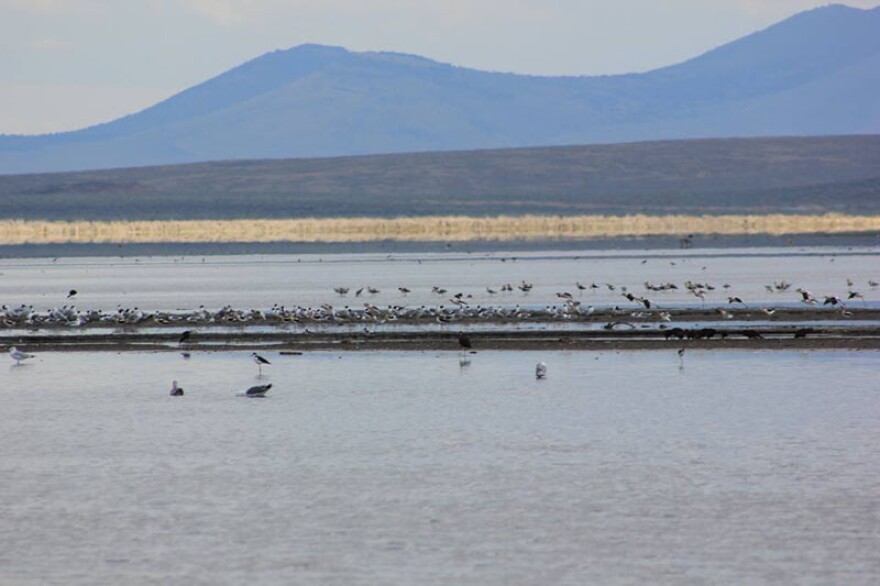More than a quarter of the lands in Washington state and more than half of Oregon’s acreage are owned by the U.S. government. It’s land that makes up national parks, forests, monuments, and wildlife refuges.
So what would it mean if the federal government did what many have been asking for, and transferred those lands to states?
Shortly after a jury acquitted seven defendants of conspiracy in the occupation of Oregon’s Malheur National Wildlife Refuge, defendant Shawna Cox told Oregon Public Broadcasting the group’s legal fight over federal lands isn’t over.
“We have a lawsuit against the federal government to prove that that land does not belong to the federal government,” Cox said. “It actually belongs to the citizens of Harney County. That’s a state issue. That is not anything to do with the federal.”
Congressman Rob Bishop, a Republican from Utah, agrees.
“They own a third of America and that’s just too damn much land to manage efficiently and effectively,” Bishop said.
He chairs the House Natural Resources Committee and argues the federal government is neither a worthy steward nor an ideal landlord.
“And that’s why if you can chop it up into smaller areas and allow states and counties who do have the expertise and are there on the ground to make that determination, it can be much, much better,” Bishop said.
‘Not an appropriate argument'
Bishop was recently in Wenatchee alongside Washington Republican Congressman Dan Newhouse. About 100 people -- including ranchers, horsemen and members of the NRA -- came to talk about federal land management, and options to transfer ownership.
U.S. Secretary of the Interior Sally Jewell said congressmen like Newhouse and Bishop haven’t accounted for the costs associated with federal lands.
“They are not inexpensive to manage and state budgets are not robust,” Jewell said. “That to suggest states could do a better job of managing them is not an appropriate argument.”
Jewell said lawmakers who aim to transfer federal lands to states also haven’t accounted for what could be lost.
“I think that there are some assumptions in these state arguments that the federal government is going to continue to provide resources for these landscapes and that’s not going to happen if they are not federal resources and they aren’t owned by all American people,” Jewell said.
Those resources are things like wildland fire mitigation, research and landscape restoration.
An act of Congress? Not likely.
Washington’s Public Lands Commissioner, Democrat Peter Goldmark, agrees the cost of managing federal land would become a burden on states.
“Clearly the federal government has the ability to spend the money in this regard, but they haven’t chosen -- they meaning Congress -- haven’t chosen to direct any significant amount of revenue to really address the forest health problem in the western part of the United States,” Goldmark said.
Problems like insects and disease, and other things that make forests vulnerable to wildfire.
The state of the Northwest’s forests came up during a debate between Oregon’s incumbent Gov. Kate Brown and challenger Bud Pierce in September. Brown told the audience she’s found an option that doesn’t involve transferring ownership.
“Most recently, I signed what’s called a good neighbor agreement with the Forest Service that we will work collaboratively to do the thinning and fire prevention work that needs to happen on our federal lands,” Brown said. “It’s a win because it puts Oregonians back to work in our woods and it also creates healthy forests.”
In order to transfer public lands in the West into state ownership, it would likely take an act of Congress. State elected officials like Gov. Brown and Commissioner Goldmark believe it’s unlikely.
A report this year from attorneys general from 10 Western states casts further doubt about whether a change in ownership even has legal precedent. Washington and Oregon’s attorneys general signed on to that report, but declined to comment for this story.
‘A big vote of confidence’
This summer, the group adopted a two-year analysis of numerous past court cases. Only Nevada’s attorney general dissented.
Peter Goldmark called that “very affirming.”
“That’s a big vote of confidence to the premise that federal land is held in trust for the people of the country,” he said.
But Goldmark isn’t seeking reelection this year, and there is turnover at other levels of land management. Secretary Sally Jewell will oversee the country’s five land management agencies only until the end of the year. She said, much like America’s political landscape, the fate of its lands, were they to be transferred to states, is unclear.
“It’s more likely they would be sold to the highest bidder and no longer belong to the American people,” Jewell said.
But land transfer supporters say those lands could be better managed at the local level.
It’s a conversation that is likely to continue even beyond November 8.

